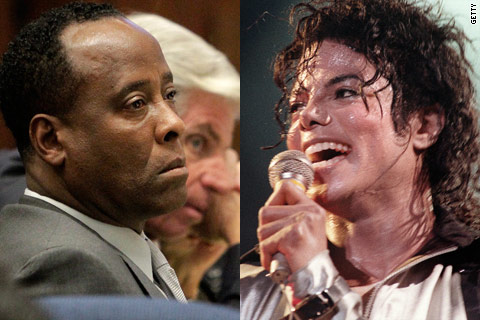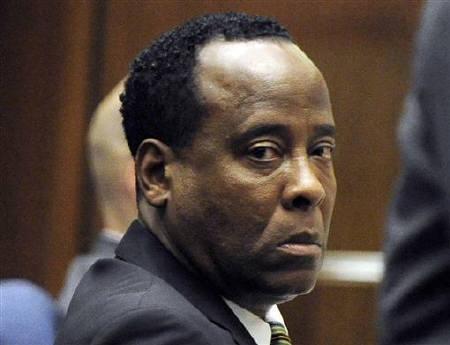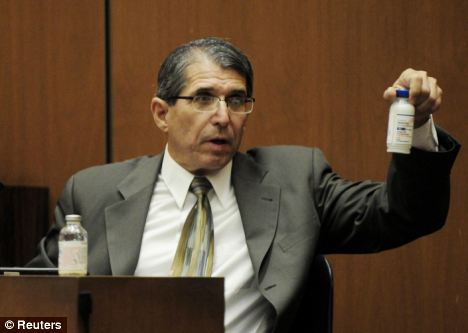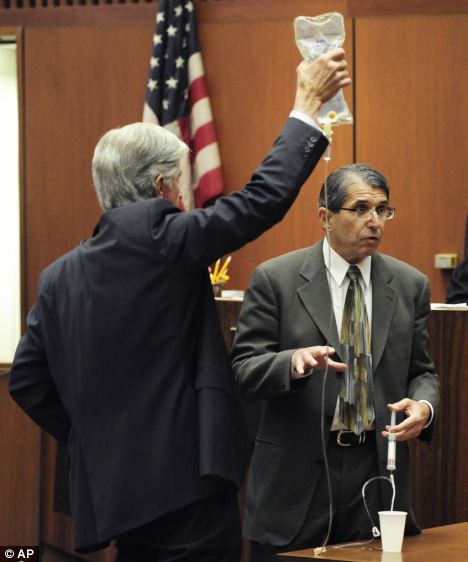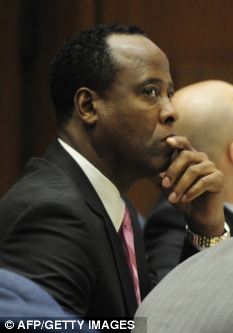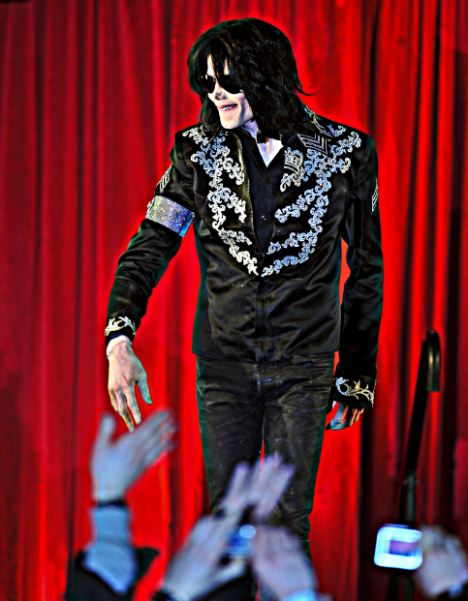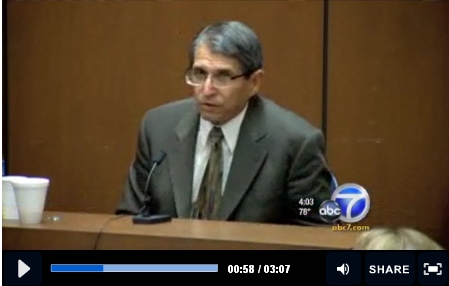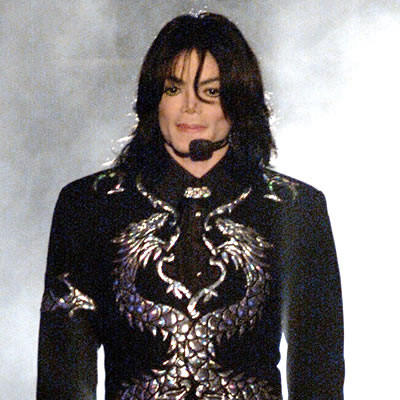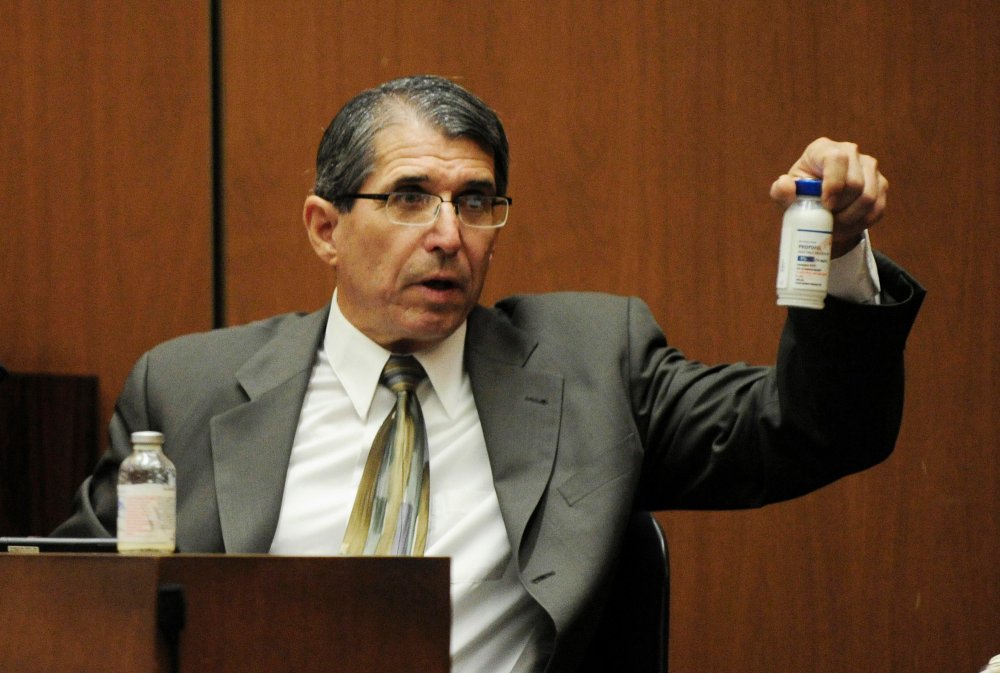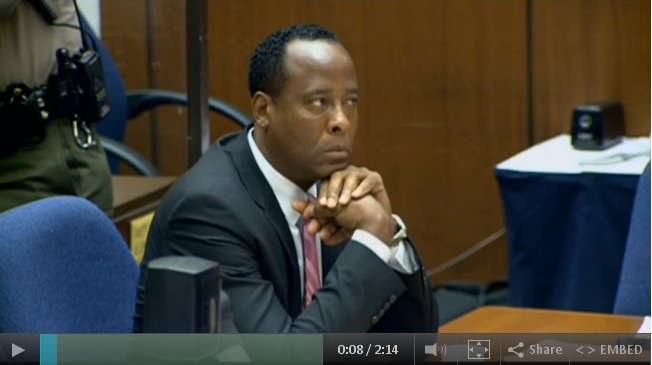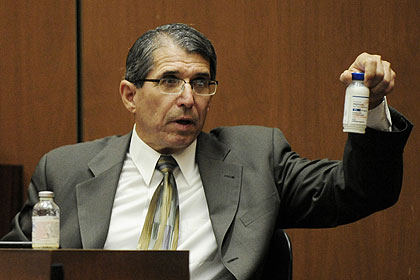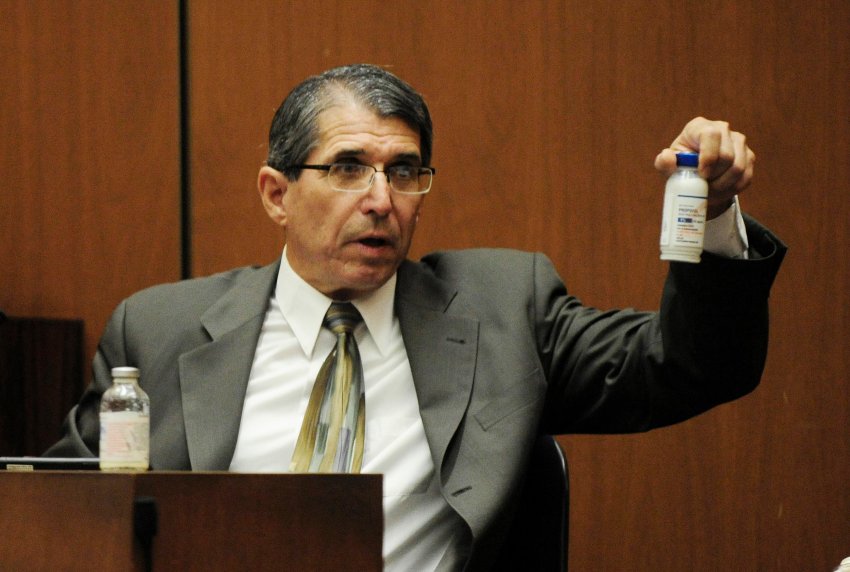gilt evtl. nicht nur für das deutsche Rechtssystem, manches könnte man teilweise vielleicht auch im amerikanischen Rechtssystem so interpretieren ...
:D "Es wird nirgendwo so gelogen wie vor Gericht!"Wer gewinnt eigentlich Prozesse? Der klügere Jurist oder derjenige, der überzeugende Beweise hat?
Der Ausgang von Prozessen häufig hängt an der Überzeugung des Richters und nicht so sehr an der juristisch feinteiligen Arbeit. Diese Erkenntnis ist Juristenkreisen Allgemeingut. Daher sind Zeugenaussagen so wichtig für den Ausgang der Prozesse. Der Autor erinnert sich noch dunkel an seinen Religionslehrer aus der Schule, der immer sagte: „Kinder, nirgendwo wird so viel gelogen, wie vor Gericht.“ Wir Schulkinder waren geschockt von der Welt der Erwachsenen, leider stimmt die These aber.
Stimmt das eigentlich? Der Wahrheitsbegriff des deutschen Rechts muss dazu definiert werden.
Zum einen gibt es den so genannten Amtsermittlungsgrundsatz oder den Beitreibungsgrundsatz. Der Amtsermittlungsgrundsatz bedeutet, dass der Richter aufgefordert ist, von Amts wegen Tatsachen aufzuklären und nachzuforschen und nachzufragen, die für die Entscheidung von Bedeutung sind. Dieser Grundsatz beherrscht z.B. den Strafprozess (hier geregelt im § 244 Absatz 2 StPO).
Die Zivilprozessordnung, d.h. Streitigkeiten zwischen Bürgern, ist zumeist geprägt von dem so genannten Beibringungsgrundsatz. Dieser besagt, dass das Gericht bei der Entscheidungsfindung nur die von den Parteien in den Prozess eingebrachten Tatsachen berücksichtigen muss.
Hier muss der Richter nicht groß fragen, sondern muss sich primär auf das verlassen, was die Parteien vortragen.
Anders als im Strafverfahren wo der Angeklagte oder Beschuldigte zu seinen Gunsten lügen kann, müssen die Parteien im Zivilprozess gemäß § 138 ZPO die Umstände „vollkommen und der Wahrheit gemäß“ abgeben.
Wichtige Erkenntnisquellen für Gerichte sind neben Urkunden, dem Augenschein, die Zeugenaussage.
Hier fängt die Krux an. Der Zeuge kann selten den Sachverhalt wahrheitsgetreu darstellen. Oft liegt es daran, dass die Geschehnisse weit in der Vergangenheit liegen. So kann es sein, dass die Geschehnisse als sicher dargestellt werden, obwohl der Zeuge sich kaum daran erinnern kann. Zeugen sind auch selten objektiv, meistens irren sie sich oder lügen sogar.
Auch der Zeuge im Zivilprozess wird zur Wahrheit ermahnt und darauf hingewiesen, dass er unter Umstände die Aussage zu vereidigen habe (§ 395 Absatz 1 ZPO). Wie ein Richter die Zeugenaussagen würdigt, steht in seinem Ermessen (§ 286 ZPO). Der Richter entscheidet darüber ob der Zeuge glaubwürdig und ob seine Aussage glaubhaft ist. Für einen Richter ist es allerdings nur schwer erkennbar, wann ein Zeuge die Wahrheit sagt und wann er lügt.
Wieso wird die Lüge nicht erkannt? Der Fehler liegt wahrscheinlich schon in der juristischen Ausbildung. Zukünftige Richter werden nicht auf soziales Verhalten und Psychologie geschult. Während des Studiums wird an einem vollständig aufgeklärten Sachverhalt gearbeitet, im juristischen Vorbereitungsdienst werden vielleicht ein paar Mal Zeugen befragt.
Kein Wunder, dass ein Richter das Verhalten des Zeugen und die Art der Aussage nicht richtigerweise bewerten kann.
So werden Zeugenaussagen oft falsch gewürdigt.
Auch wenn die Zeugen nicht absichtlich lügen, so ist auf das menschliche Erinnerungsvermögen nicht hundertprozentig Verlass. So wird ein Tathergang oft nicht zuverlässig rekonstruiert. Vieles hängt hier von der Konzentration auf den Handlungshergang ab. So entstehen Erinnerungslücken, verschiedene Details werden ausgelassen.
So vorgetragen wird dem Richter ein verfälschtes Bild über die entscheidenden Geschehnisse vermittelt.
Das Wahrnehmungsvermögen ist auch von Mensch zu Mensch unterschiedlich, es hängt vom aktuellen Zustand, Alter und auch der Konzentration auf bestimmte Geschehnisse ab. So werden oft Details falsch wahrgenommen, die für die Sachverhaltsaufklärung von Bedeutung sein könnten. Die Zeugen können sich verhören, optisch täuschen, Personen und deren Namen verwechseln. Nehmen wir als Beispiel einen Verkehrsunfall. Dieser geschieht normalerweise so schnell, dass ein Mensch kaum alle Geschehnisse richtigerweise erfassen kann. Vielmehr erfasst er nur Einzelne Teile vom Geschehnis und daraus bildet er unbewusst das „Gesamtgeschehen“.
Zu diesem Thema wurden auch zahlreiche Forschungen durchgeführt. Sie ergaben, dass Geschehnisse, direkt von den Menschen interpretiert, oft mit anderen Umständen in Verbindung gebracht und erst dann gespeichert werden. Später werden sie dann verfälscht wiedergebracht.
Natürlich werden Falschaussagen vor Gericht auch strafrechtlich belangt. Dies allerdings auch nur dann, wenn die Unwahrheit erwiesen wird. Und gerade das erweist sich als problematisch, vor allem wenn die Zeugenaussage das einzige Beweismittel ist oder es Aussage gegen Aussage steht. Dies wissen die Parteien meist schon vor Prozessbeginn und können sich darauf einstellen.
Das Problem ist in den Juristenkreisen weit bekannt, eine zufriedenstellende Lösung wurde noch nicht gefunden. Hilfreich wäre es Richter im Bereich Aussagepsychologie zu schulen, so könnten sie lernen die Fragen richtig zu stellen und die Antworten richtig zu bewährten.
Wie erfährt man wann der Zeuge lügt? Vor allem soll es auf die richtige Fragestellung ankommen. So ergaben zahlreiche Forschungen in diesem Bereich, dass oft fragen über Details zu einem bestimmten Geschehnis die Lügner ins stocken bringen. Gelogene Geschichten werden chronologisch Aufgebaut. Der lügende Zeuge ist gut auf die konkreten Fragen zum streitigen Sachverhalt geschult worden. Die vorbereiteten Antworten will er auch schnell loswerden. Bei unerwarteten Fragen zum Wetter oder Details über die Kleidung des Beklagten werden die Lügner dann meistens enttarnt.
Leerfragen wie z.B. „was ist dann passiert?“ sollen den Zeugen dazu bringen, weitere, unbeeinflusste Auskünfte zu erteilen Durch Anstoßfragen soll der Befragte auf ein konkretes Thema gebracht werden, z.B. mit „Wie ist es zu diesem Gespräch gekommen?“
Zuerst solle der Zeuge selber berichten können, ohne unterbrochen zu werden. Dann sollte man die Person ergänzen lassen. Möglichst lange sollten „W“ Fragen gestellt werden „Wer?“, “Wie?“, „Wo?“). Ob die Wahrheit gesagt wird kann der Vernehmer auch an der Beantwortung von Situationsfragen erkennen, indem unerwartete Fragen zu nebensächlichen Themen gestellt werden. Lügner können diese nur mit Mühe beantworten, sie verfügen nämlich nicht über „echte“ Erinnerungen“.
Ein großer Fehler sei es verneinende Fragen zu stellen. Es ist einfacher zu lügen, wenn man die Fragen nur mit „nein“ oder „ja“ beantworten muss. Es sollten auch nicht mehrere Fragen aneinander geknüpft sein. Dadurch wird der Zeuge verwirrt und gibt nicht auf alle Fragen eine ausgiebige Antwort. Auch wenn die Befragungstechnik hier ganz einleuchtend erscheint, ist es auch oder vor allem für erfahrene Rechtsanwälte oder Juristen schwer, diese praktisch umzusetzen. Schließlich gestaltet sich jede Befragungssituation anders und jeder Befragte reagiert auf bestimmte Fragen anders.
Woran erkennt man, dass der Zeuge lügt? Nach der ständigen Rechtsprechung des Bundesgerichtshofs sollte der Richter bei der Bewertung den Schwerpunkt auf die Ermittlung der Richtigkeit der Angaben anstatt der Glaubwürdigkeit des Aussagenden legen.
„Es geht vielmehr um die Beurteilung, ob auf ein bestimmtes Geschehen bezogene Angaben zutreffen, d.h. Einem tatsächlichen Erleben entsprechen“ (BGH Urteil vom 30.07.1999 – 1 StR 618/98)
Es gibt nämlich keine Personen die generell die Wahrheit sagen oder generell Lügen. Auch kann dies nicht anhand der beruflichen oder gesellschaftlichen Reputation festgestellt werden. Es ist auch nicht die Regel, dass die Ehefrau des Beklagten in seinem Sinne lügt und der Polizeibeamte immer wahrheitsgetreu antwortet.
Ein oft ungleiches Verhältnis bei der Prozessführung ist dann gegeben, wenn sich z.B. große Firmen und kleine Unternehmen gegenüberstehen. Große Firmen mit vielen Mitarbeitern können oft mehrere Zeugen benennen, während die kleinen Unternehmer schon Partei im Prozess sind. Die Mitarbeiter großer Gesellschaften identifizieren sich natürlich auch mit dem Arbeitgeber und sagen oft zu seinem Gunsten aus.
Genau so soll es leichter sein zu Ungunsten von großen anonymen Institutionen auszusagen. Der Zeuge kann es leichter mit sich selber vereinbaren, wenn z.B. große Gesellschaften wie Kreditinstitute oder der Staat benachteiligt wird.
Oft lässt sich der Richter bei der Vernehmung von der unbewussten Sympathie oder Antipathie zum Zeugen leiten. So haben die Richter Wendler und Hoffmann feststellen können, dass die Sympathie, gleiche Herkunft, die Angehörigkeit zur gleichen gesellschaftlichen Schicht Auswirkungen auf die Bereitschaft haben Aussagen weniger zu hinterfragen. So erwiesen Tests, dass einem Skinhead mehr Nachfragen gestellt worden sind als einer hübschen jungen Frau, bei gleicher Aussage. Auch werden die Aussagen von Ausländern öffter mit Skepsis behandelt.
Die Frage der Motivation des Zeugen kann auch in die Erwägungen über die Glaubhaftigkeit des Zeugen mit einfließen (so auch der BGH in seiner Entscheidung vom 30.07.1999, Az.: 1 StR 618/98. Allerdings sollten hier diese Feststellungen nicht pauschal vorgenommen werden. Der Grundsatz der freien Beweiswürdigung (§286 ZPO), der besagt, dass das Gericht die Beweise ohne feste Regeln immer im Einzelfall zu bewerten habe, sollte dabei nicht vergessen werden.
Als ein Indiz, dass für die Wahrheit der Aussage spricht, wird in der Rechtsprechung die Selbstbelastung anerkannt. Bewusst falsche Aussagen haben nur selten eine selbstbelastende Wirkung.Anders versuchen sich intentional falsch aussagende Zeugen möglichst vorteilhaft und positiv darzustellen.
Zudem konnten Praktiker feststellen, dass lügende Personen bei ihrer Darstellung oft übertreiben um auf diese Weise den Richter überzeugen zu können. Einer sicher klingenden Behauptung wird schließlich oft mehr Glauben geschenkt als einer sich weniger bestimmt anhörenden.
In ihrem Buch weisen die Richter Wendler und Hoffmann auch darauf hin, dass die lügenden Zeugen nur begrenzt beurteilen können, ob dass was sie vor Gericht geschildert haben ausreicht um das Prozessziel zu erreichen. Deswegen sagen Lügner mehr, um zu „überzeugen“. Oft spricht also das „zu wenig“ gesagte für die Wahrheit. Ist es für die Richter dann zu wenig und sie verlangen eine „genaue Schilderung“ wird der Lügner meist darauf eingehen und nochmal „nachbessern“. Verzichtet der Zeuge auf diese „Ergänzungen“ kann man eher von der Wahrheit der Aussage ausgehen.
Ehrliche Personen sollen auch in ihren Aussagen Erinnerungsmängel zugeben können, während falsch aussagende Zeugen dies vermeiden.
Die Körpersprache ist auch ein Erkenntnismittel für die Richter. Dabei kommt es nicht auf die Merkmale wie Nervosität oder Vermeidung von Blickkontakt an. Vielmehr sind gerade die unbewussten Signale ausschlaggebend. Die Interpretation der Körpersprache ist in der Praxis allerdings sehr schwierig. Manche Verhalten können nämlich mehrdeutig interpretiert werden oder auch andere Gründe haben. Eine Person kann auch aus anderen Gründen innerlich aufgewühlt sein.
Als Fazit lässt sich also feststellen, dass die Zeugen nicht nur zu bezeugen brauchen, sondern eher überzeugen müssen. Der Zeuge muss also eine gute, glaubhafte Aussage liefern. Der Anwalt kann hier über noch so gute juristische Kenntnisse verfügen, letztlich spielt nur die Beweiskraft die entscheidende Rolle und hier ist der Zeuge meistens die Schlüsselfigur.
Dr. Thomas Schulte, Rechtsanwalt
http://www.dr-schulte.de/2010-pressemitteilungen/es-wird-nirgendwo-so-gelogen-wie-vor-gericht.html (Archiv-Version vom 30.03.2013)

